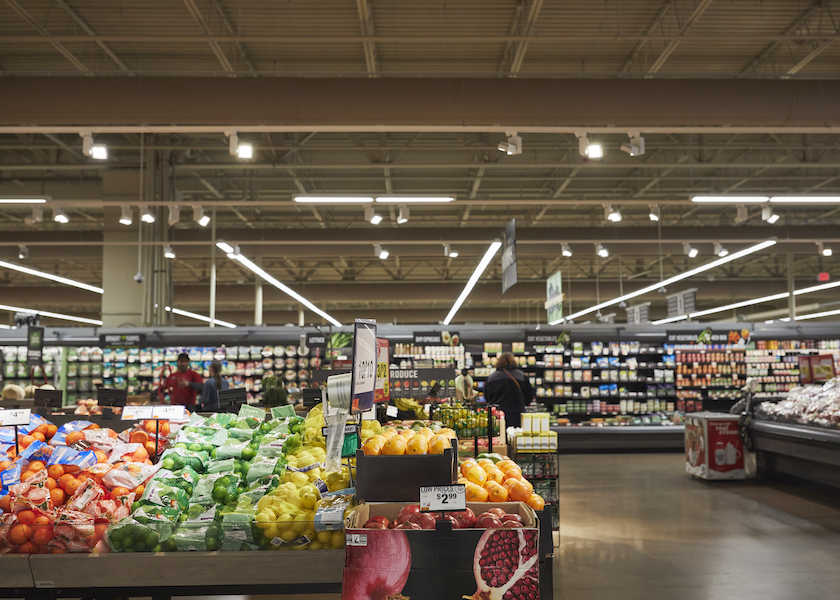Vilsack Announces $2B in Funding to Transform U.S. Food System

Transforming the U.S. food system by improving supply chains and addressing issues exposed by the Covid-19 pandemic will be detailed today by USDA Secretary Tom Vilsack during a speech at Georgetown University.
The over $2 billion package includes previously announced funding to expand meat and poultry processing and to finance new infrastructure such as cold storage facilities, but there $600 million in new aid to support food supply chain infrastructure outside meat processing. The plan also includes $400 million for regional food business centers, up to $300 million for a new organic transition initiative and $75 million to support urban agriculture.
The initiatives are funded through the American Rescue Plan that was enacted in March 2021 and other relief legislation. On Thursday, Vilsack will be in Ohio with Democratic Rep. Marcy Kaptur to visit a full-service grocery store in central Toledo called Market on the Green.
The package includes $650 million in funding and loan assistance for meat and poultry processing projects, including $275 million to help entrepreneurs who have had trouble getting credit. Another $100 million would go toward training workers in meat processing. Another $600 million is earmarked for improving food supply chain infrastructure, including cold storage and refrigerated trucks, outside of meat and processing.
Other funding in the plan includes:
- $200 million to help fruit and vegetable growers comply with food safety regulations.
- $400 million to create regional food business centers that will provide coordination and technical assistance and other support to small and mid-size businesses involved in processing, distribution and aggregation.
- $155 million to expand USDA’s Healthy Food Financing Initiative, which is aimed at reducing food deserts.
- $90 million to prevent and reduce food loss and waste.
- $60 million farm-to-school programs that increase markets for smaller-scale farmers through child nutrition programs.
The announcement comes as supermarkets and distributors are pushing back on higher prices from food makers, as escalating inflation drives more consumers to rethink their spending. The Wall Street Journal reports (link) that Kroger Co. and other grocery chains said they are asking brands to prove why higher prices are necessary before accepting them, and warning manufacturers that they will stop carrying products if food companies won’t negotiate prices. Some companies said they are switching to new meat suppliers with cheaper products and are delaying price changes for items like canned goods.
Retailers generally have been passing price increases along to consumers, and executives have said that for months shopper demand has remained strong. Industry executives said that is starting to change, as consumers increasingly look for ways to stretch their dollars.







